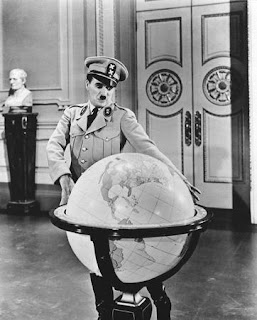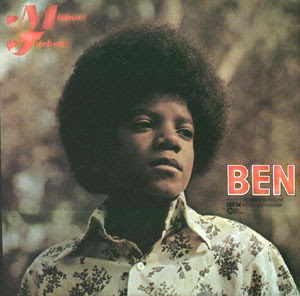The two-time Oscar nominee's six-decade career also included turns on the BBC’s Doctor Who and in A Man for All Seasons (1966), Midnight Express (1978) and three Harry Potter films.
He announced in June 2015 that he had been diagnosed with pancreatic cancer.
On screens big and small, Hurt died what seemed a thousand deaths. “I think I’ve got the record,” he once said. “It got to a point where my children wouldn’t ask me if I died, but rather how do you die?”
One of his most memorable came when he played Kane, the first victim in Ridley Scott’s Alien (1979), in which he collapses over a table and a snakelike alien bursts out of his chest. (How'd they do that? There was an artificial chest screwed to the table, and Hurt was underneath.)
“Ridley didn’t tell the cast,” executive producer Ronald Shusett told Empire magazine in 2009. “He said, ‘They’re just going to see it.’ ”
“The reactions were going to be the most difficult thing,” Scott explained. “If an actor is just acting terrified, you can’t get the genuine look of raw, animal fear. What I wanted was a hardcore reaction.”
Hurt then lampooned the famous torso-busting scene for director Mel Brooks — whose production company produced 1980's The Elephant Man — for the 1987 comedy Spaceballs.
The Elephant Man received eight Academy Award nominations, including one for Hurt as best actor, but went home empty on Oscar night. (Hurt lost out to Robert De Niro as boxer Jake LaMotta in Raging Bull.)
Hurt also garnered an Oscar best supporting actor nomination and a Golden Globe win in 1979 for Midnight Express, in which he portrayed a heroin addict in a Turkish prison. The Alan Parker drama was based on the true story of Billy Hayes (played by Brad Davis), an American college student caught smuggling drugs.
“I loved making Midnight Express,” he said in 2014. “We were making commercial films then that really did have cracking scenes in them, as well as plenty to say, you know?”
His more recent film appearances came in Snowpiercer (2013), The Journey (2016) and Jackie (2016). He is set to be seen in the upcoming features That Good Night and My Name Is Lenny and was to play Neville Chamberlain in the upcoming Joe Wright drama Darkest Hour.
John Vincent Hurt was born Jan. 22, 1940, in Chesterfield, Derbyshire, England. He studied art at his parents’ behest, earning an art teacher’s diploma. Disillusioned with the prospect of becoming a teacher, Hurt moved to London, where he won an acting scholarship at the Royal Academy of Dramatic Art. He studied there for two years, securing bit parts in TV shows.
Hurt made his London stage debut in Infanticide in the House of Fred Ginger in 1962. That year, he acted in his first film, The Wild and the Willing, and his role as the duplicitous baron Richard Rich in Oscar best picture winner A Man for All Seasons helped him become more widely known in the U.S.
Hurt brought his peculiarly powerful persona to the role of Mr. Ollivander in Harry Potter and the Sorcerer’s Stone (2001) and Harry Potter and the Deathly Hallows: Part 1 (2010) and Part 2 (2011).
Hurt also was known for his rich, nicotine-toned timbre, which won him many voiceover assignments. He was the narrator in The Tigger Movie (2000), Dogville (2003), Manderlay (2005) and Charlie Countryman (2013).
Hurt brought his peculiarly powerful persona to the role of Mr. Ollivander in Harry Potter and the Sorcerer’s Stone (2001) and Harry Potter and the Deathly Hallows: Part 1 (2010) and Part 2 (2011).
Hurt also was known for his rich, nicotine-toned timbre, which won him many voiceover assignments. He was the narrator in The Tigger Movie (2000), Dogville (2003), Manderlay (2005) and Charlie Countryman (2013).
For the small screen, Hurt starred in the TV shows The Storyteller, The Alan Clark Diaries, The Confession and Merlin and in the miniseries Crime and Punishment and Labyrinth. He notably played the War Doctor in the 2013-14 season of Doctor Who.
The accomplished stage actor performed with the Royal Shakespeare Company and Royal Academy of Dramatic Art. In 1994, he starred opposite Helen Mirren in Bill Bryden’s West End production of A Month in the Country, and he scraped out an edgy and vigorously dour performance in Samuel Beckett’s autobiographical one-man drama Krapp’s Last Tape in 1999.
When asked about the difference between film and stage acting, Hurt explained: “It’s rather like two different sports. You use two completely different sets of muscles.”
In 2012, Hurt was honored with a lifetime achievement award by the British Academy of Film and Television Arts, then was knighted by Queen Elizabeth II in July 2015.
Survivors include his fourth wife Anwen Rees-Myers, whom he married in 2005, and sons Alexander and Nicholas...






























